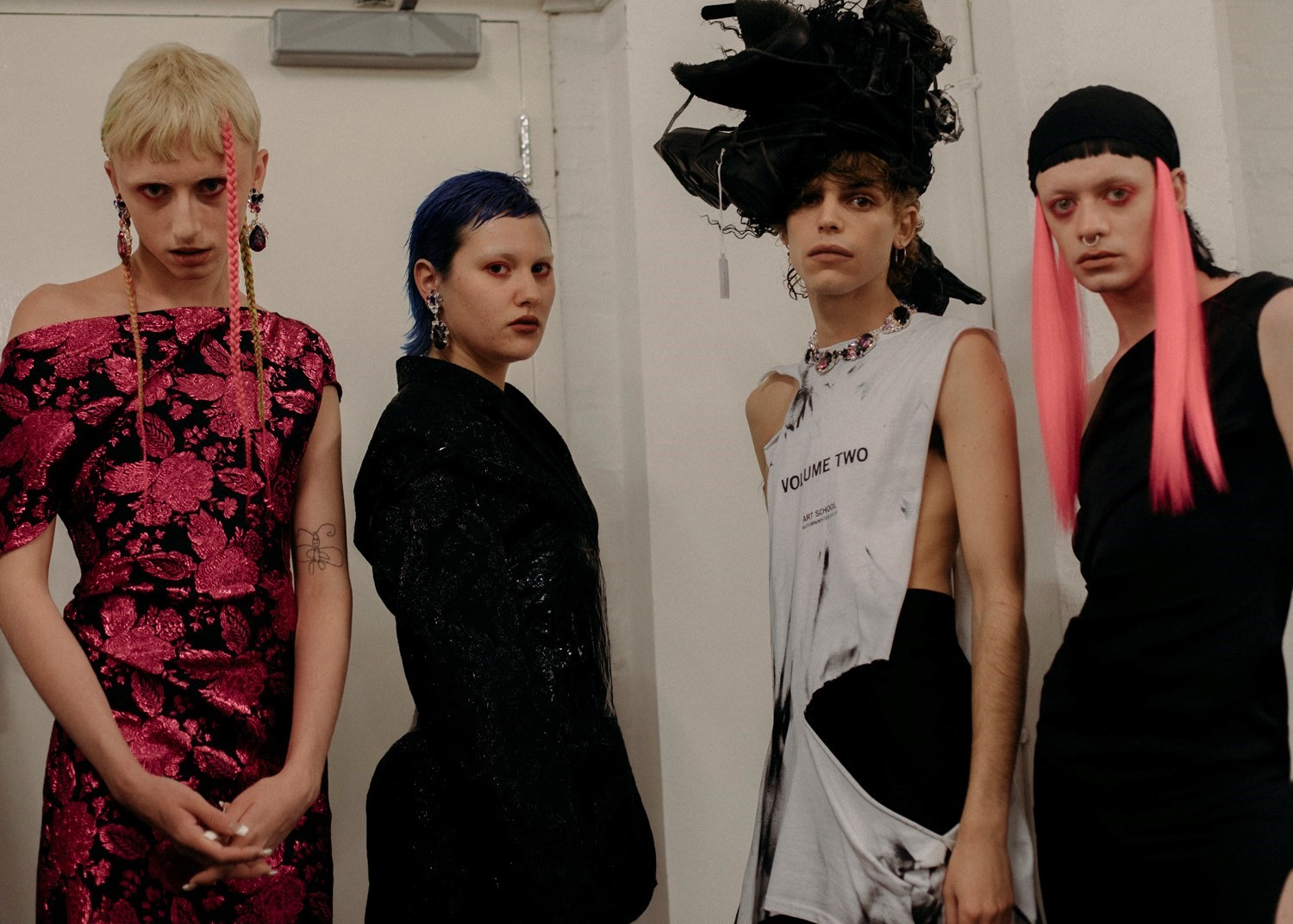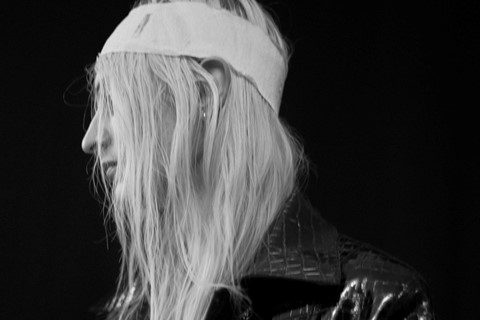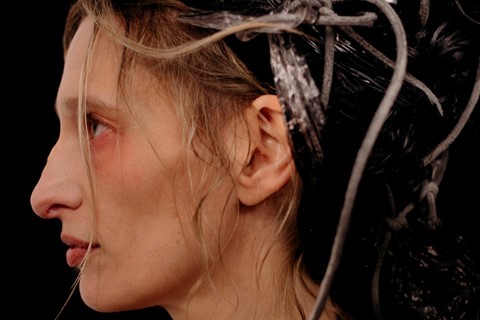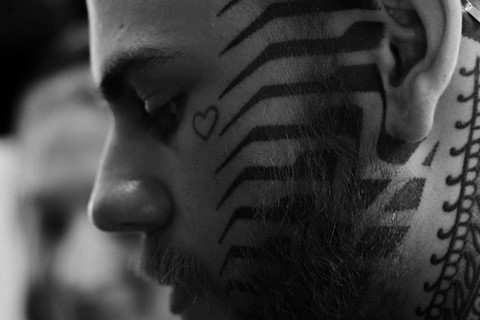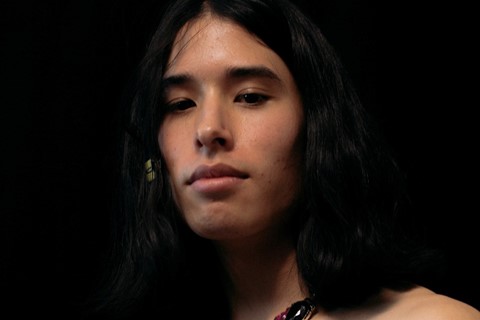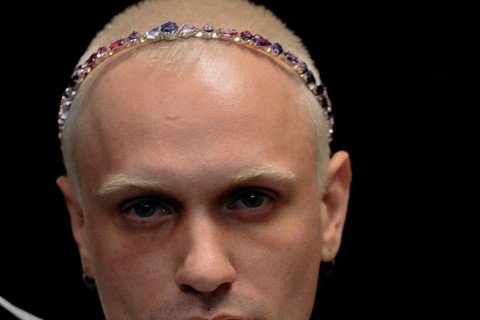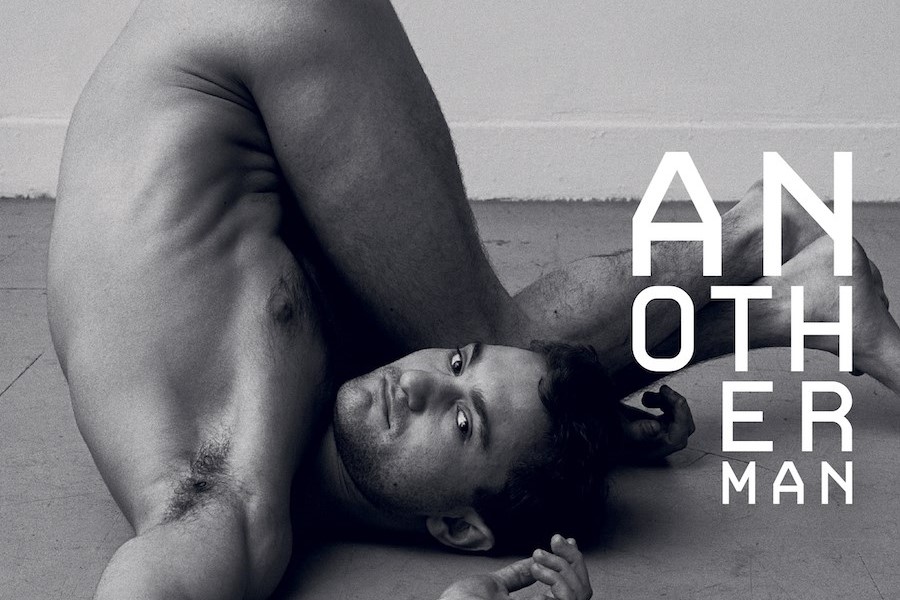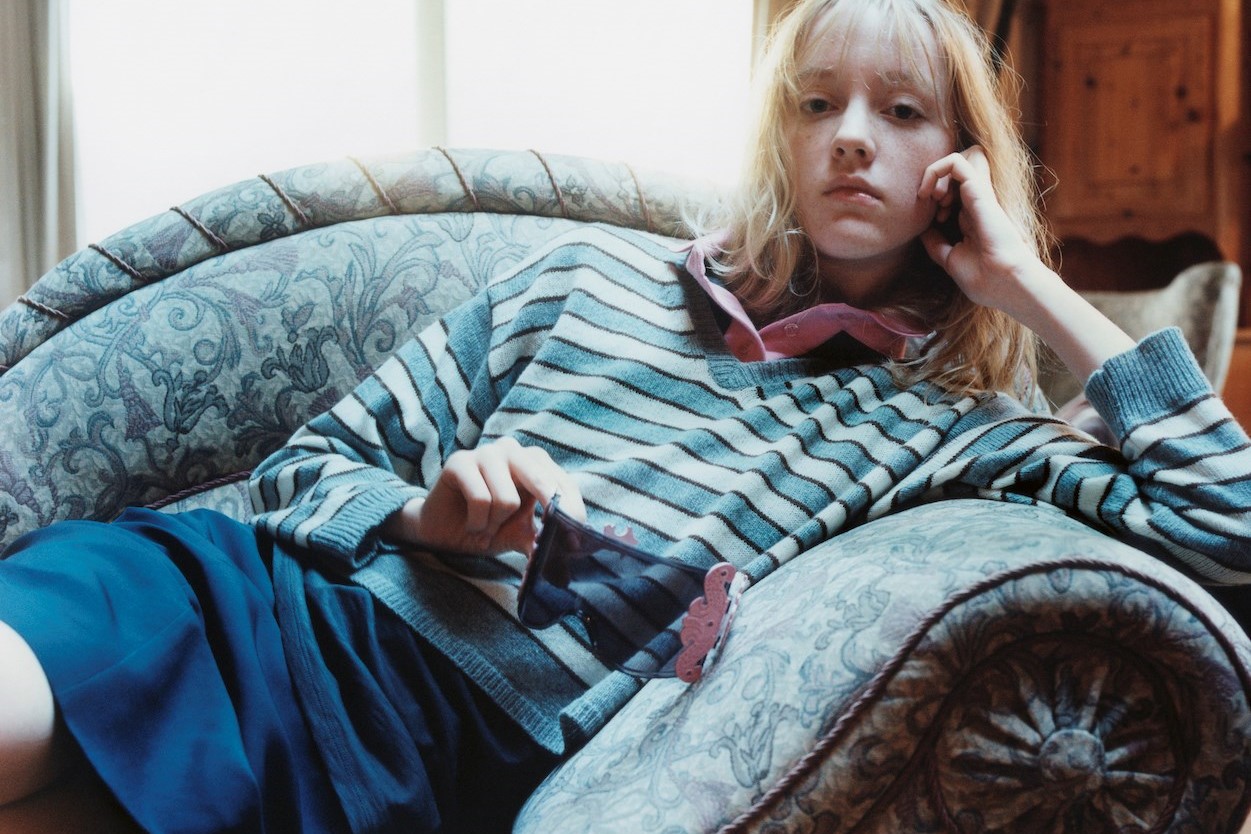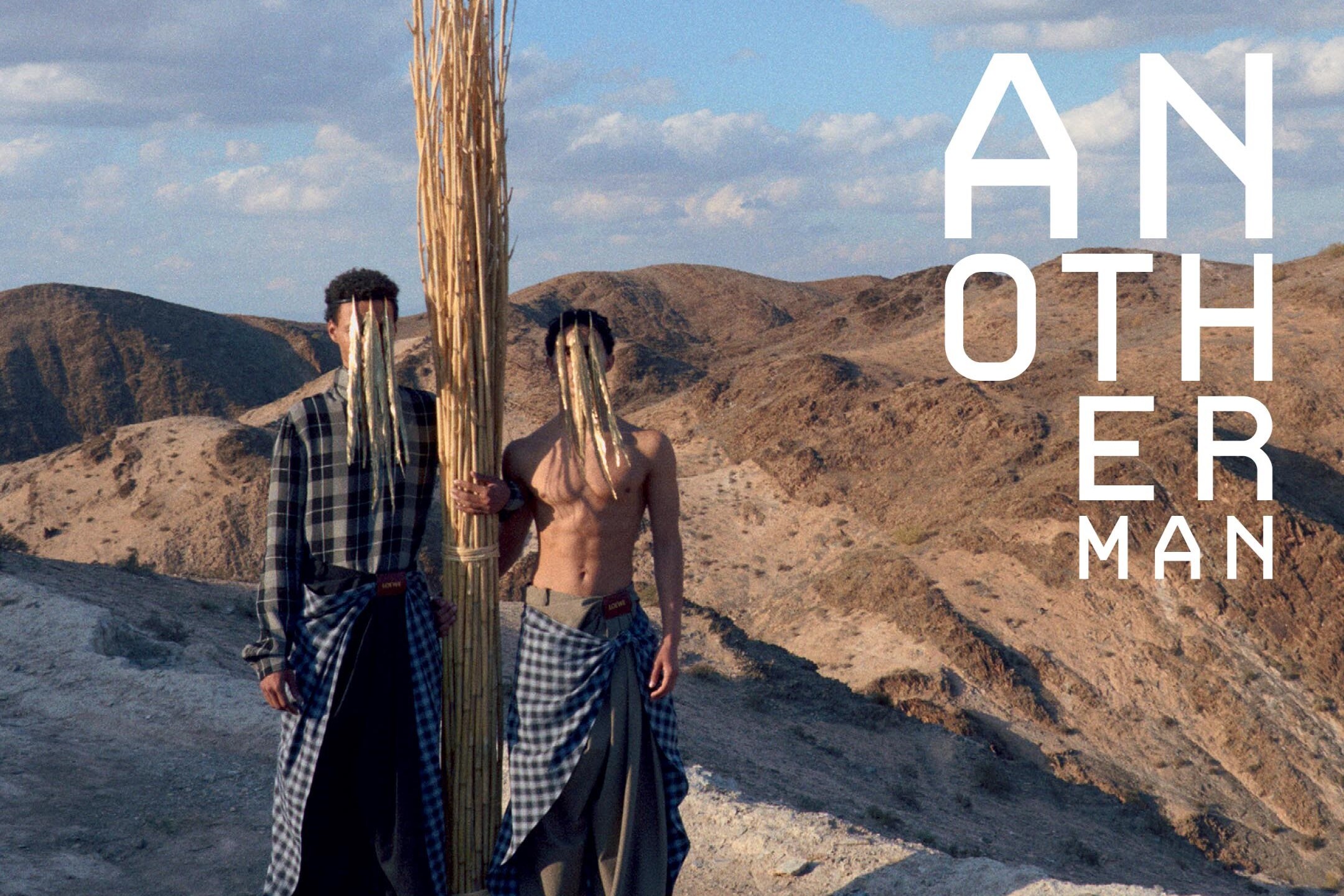“If I walk Art School, I’ll call the move a success.” That’s what I told myself in September before I moved to London. Fast forward three months and 15 days and I’m standing on a runway next to Princess Julia and she has a handful of my hair.
I’d been following Art School for a while through their Fashion East shows – I’d seen the trashy decadence of their garments, their runways peppered with all the queer models and performers I knew from Instagram – and, as a trans woman, seeing a brand putting multiple trans and gender non-conforming people on a runway at London Fashion Week made them an instant favourite. It’s more than representation or inclusion, it’s prioritising: they have been pioneers of casting almost entirely queer shows from the beginning. They’re queer designers making queer garments for shows full of queer models; from the far-off distances of Bristol it all looked so fantastically, well, queer.
It all started to become real when Tom Barratt and Eden Loweth, the two designers behind Art School, DJ’d at Xoey 5.0’s Halloween WIMP launch party. I’d met Xoey and her housemates through Transmissions, a weekly meet-up organised by Lucia Blake, who also performed at the launch party. The attendees, including Joe Sweetie who eventually walked the show, were apparently catching the eye of the designer duo. Three weeks later, I get an Instagram message from Tom inviting me to the casting. Two weeks after that, I mention it to Saint Ann (who opened the show) who told me that Tom and/or Eden had messaged Emily After (who lives with Saint and Xoey) after WIMP asking who I was so that they could message me. They invited Saint, Emily, Xoey, Lucia, Joe and me all to the casting in the wake of that WIMP, a gesture that not only shows their involvement in London’s queer scene, but also their commitment to representing the community on their runway.
“[Art School] really want to showcase queer bodies rather than using [queer] people to gain some sort of cool factor, there’s a sense that it’s genuine” – Saint Ann
This whole process and their presence at queer events like WIMP is indicative of Art School’s attitude to casting and the culture in which they exist. “The work we do is originally so inspired by nightlife, and so inspired by the community,” says Tom. “We found all of you guys [at WIMP] and we were so inspired by all of you – it really rejuvenated us,” adds Eden. By representing a contemporary queerness in the fashion industry, Art School are able to make a strong statement about their community and it’s one they’re proud of. “I think today we really conveyed an important message that this community exists and we can open London Fashion Week and we can do the BFC proud,” says Eden with heartfelt gravitas. As if to illustrate the point, Saint Ann separately expressed that they “feel like [Art School] really want to showcase queer bodies” rather than “using [queer] people to gain some sort of cool factor, there’s a sense that it’s genuine”. For Eden, in the context of most shows being cast through agencies and chosen based on looks alone, there is a sense of pride in knowing their models: “Being able to talk about all of you, not just as models, but as friends, is not just emotionally moving, but so important to us.”
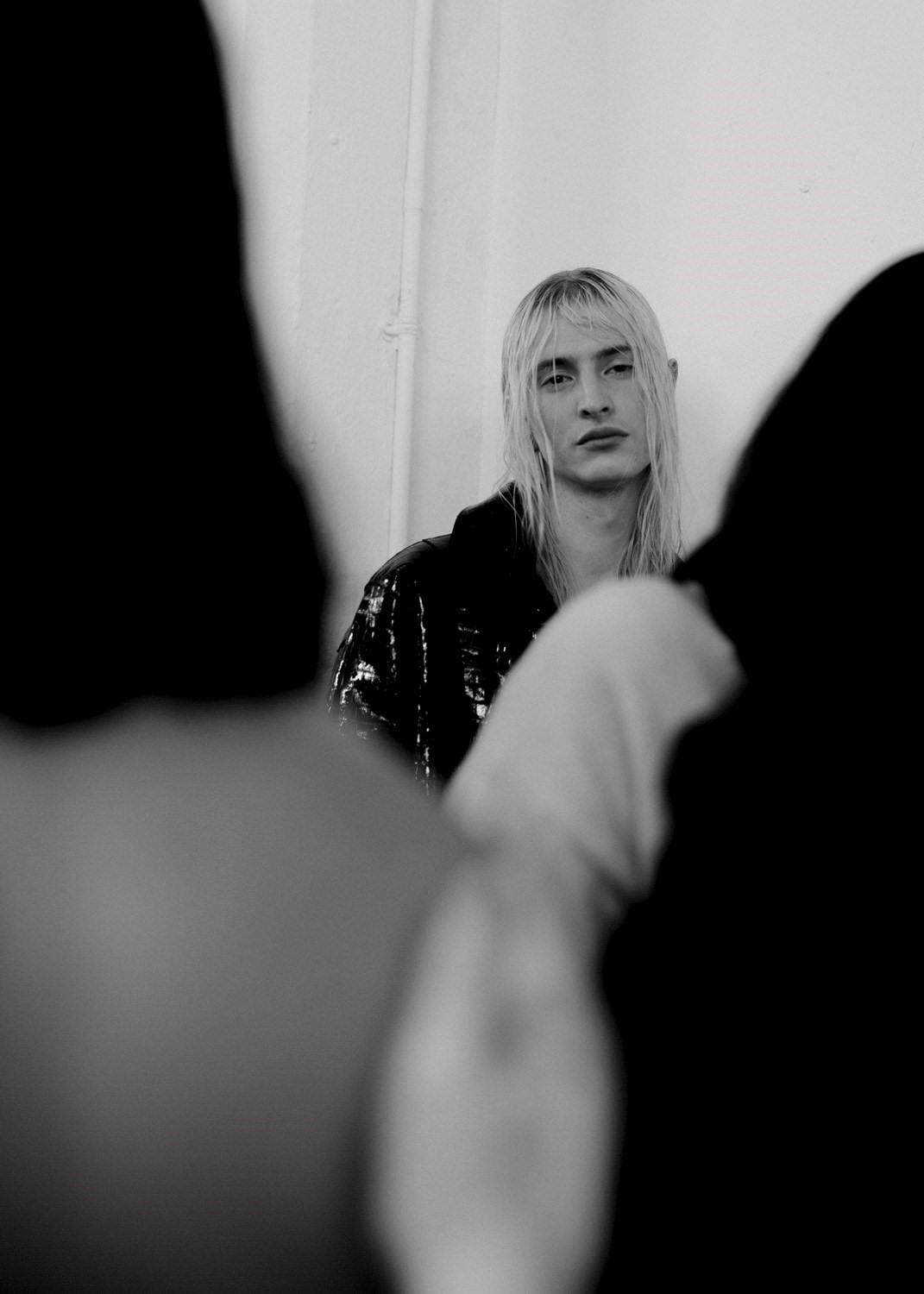
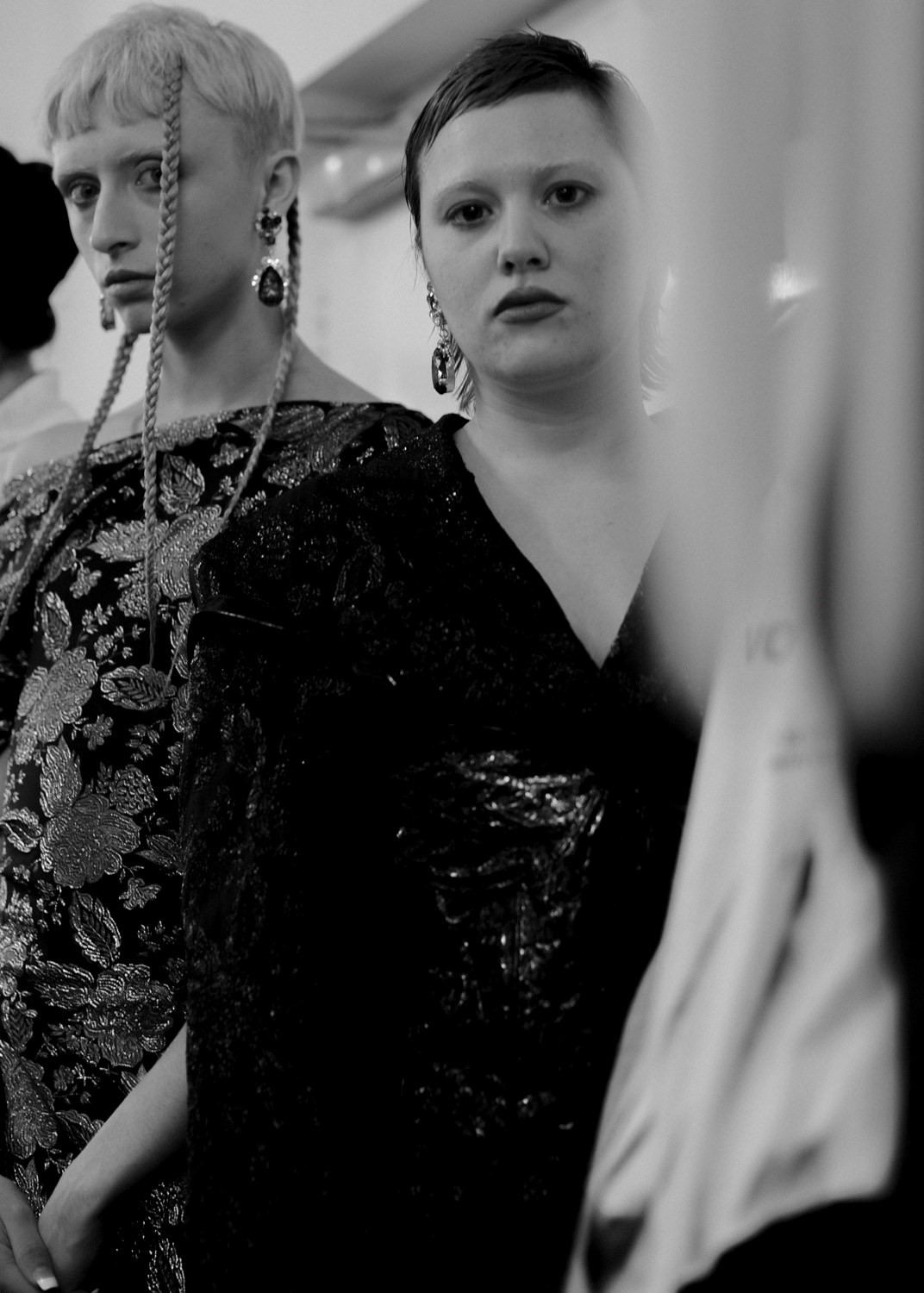
Our place as friends and individuals was clear and prioritised from the start – we were cast as ourselves, and were allowed to maintain our identity throughout. I wore a satin slip dress under a spectacular black faux croc-skin trench coat, which was the first thing I clocked when I walked into the fitting. It’s a look I’d wear on a Saturday night; it would fit seamlessly into my wardrobe and go with everything. Saint Ann wore their own extensions and an equally appropriate dress, Joe’s character shone through in their bleached brows and their pink look was their balance of gareish and gorgeous – Art School respected us enough to let us be ourselves in their clothes.
“Our place in as friends and individuals was clear and prioritised from the start – we were cast as ourselves, and were allowed to maintain our identity throughout”
From the fitting to the dress rehearsal, and backstage after the show, the feeling of our shared culture and community was tangible. Between models returning from last season and the casting process being so immersed in current queer culture, so many of us knew each other, making the atmosphere relaxed, friendly and, above all, overflowing with compliments. Backstage, you almost couldn’t move without a “Yeeeeesss” and a hand waved at your outfit – anyone who walked past or caught your eye seemed compelled to tell you that you looked so good. “It’s going to take me about three weeks to bounce back from how full my heart is with joy,” Tomasin, who was brought in from Berlin for the show, screams at me on the dance floor of the afterparty as we reflect on how loving and supportive everyone has been through the whole process and our new, expanded queer circles.
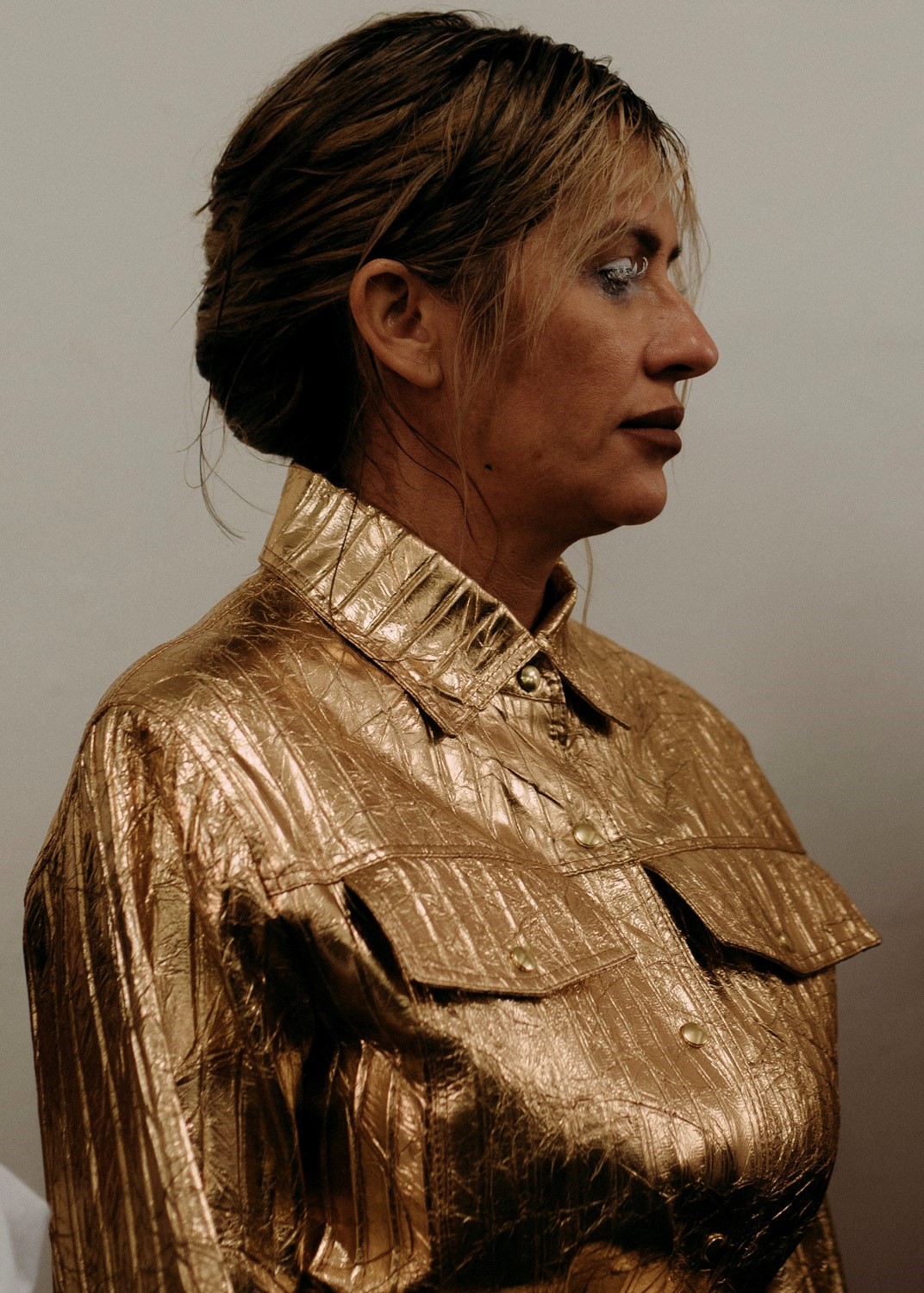
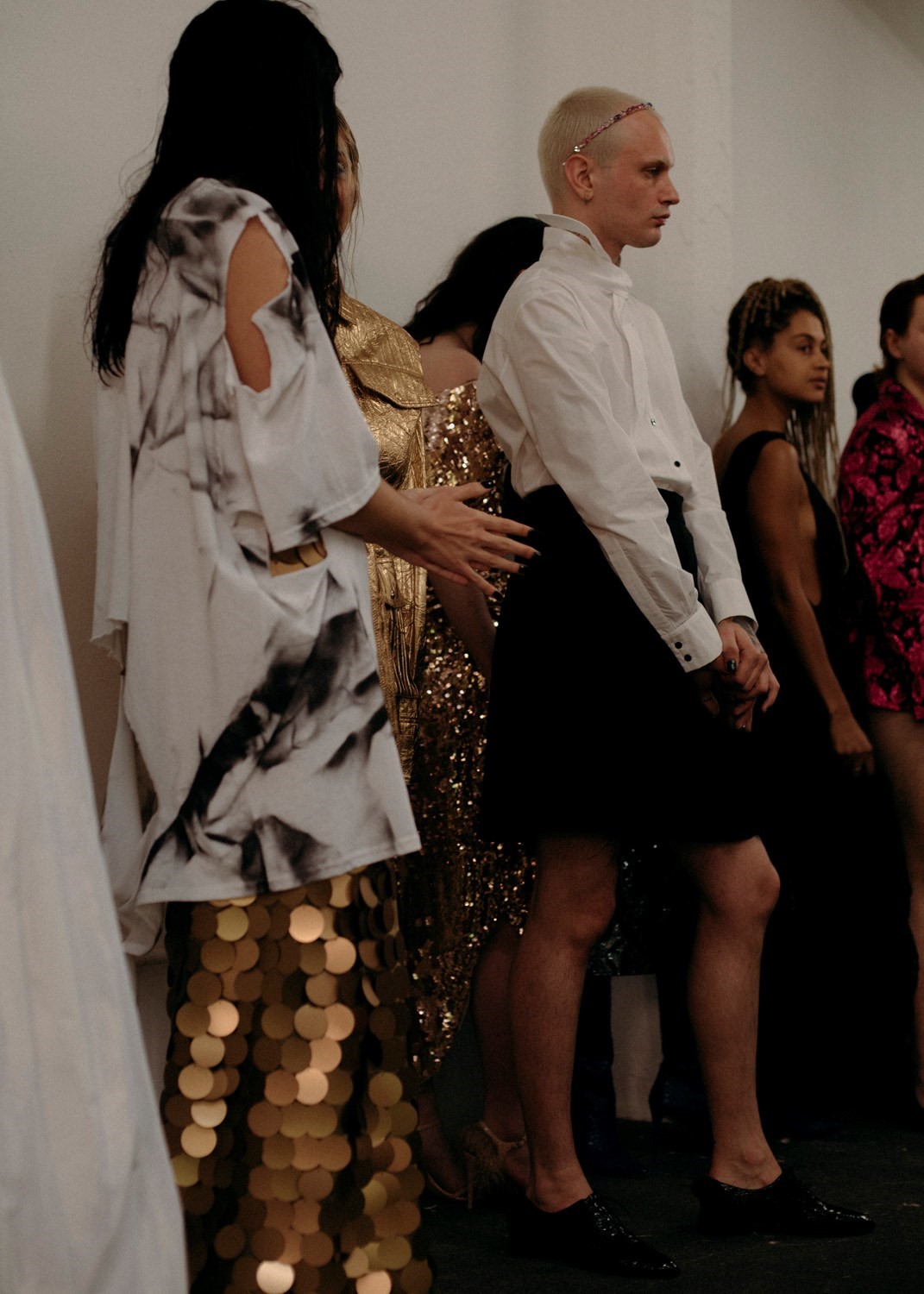
For Tom, this is the whole point: the show “is about joining people together”. While Art School’s community comes from existing queer circles, it comes from a number of them. What the show manages to do is introduce those circles to each other — imagine a Venn diagram of queer social scenes overlapping slightly, but with Art School as one shared point of contact. “This vision isn’t something narrow, it’s actually broad,” Tom continues, which they reflect in the show both through the bringing together of different queer groups, as well as the wide range of ages in show. The younger queer community is brought together with handpicked women including Tom’s tutor from Central Saint Martins, a customer who reached out and landed a place in the show, and, of course, Cheshire royalty Dawn Ward. “There’s a whole load of us that understand and really think these things, but it’s just not communicated in the mainstream media,” which Tom sees as an issue that needs addressing. Obviously the show is their method, making the show and process around it an act of “creat[ing] a world for ourselves, because it’s not there, we need to create it.”
It may need to be created, but we’re well on our way to creating it. With the current, very public discussion around gender – with model and activist Munroe Bergdorf appearing on breakfast television and the GRA consultation towards the end of last year – as well as a queer community that is growing and generally becoming more visible, it seems appropriate that the fashion industry is letting go, albeit slowly, of its entrenched gender binary. Having Art School open what is ostensibly men’s fashion week is a huge milestone for the industry and queer visibility generally.
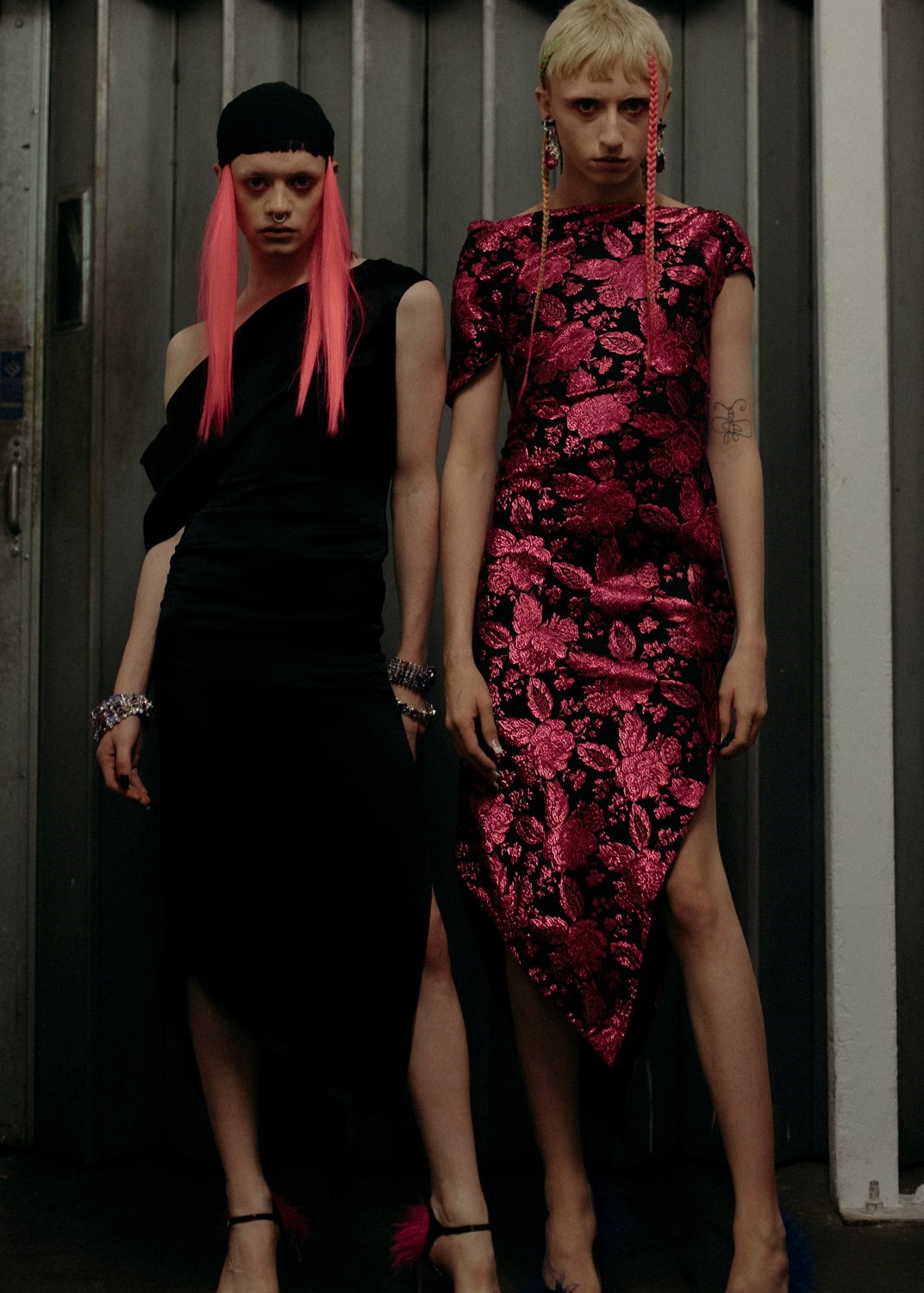
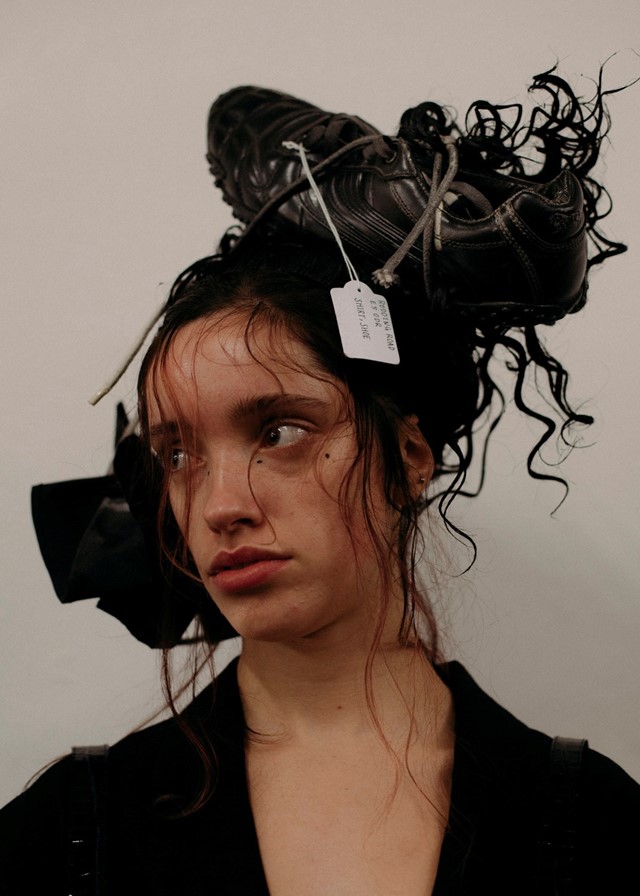
The mood on the hair and makeup board was ‘Rebirth’. With this show Art School is reborn, beyond the boundary of Fashion East, standing alone and strong, and supporting the queer community – even physically lifting it, elevating Art School sweetheart Slid towards the sky in the closing tableau.
By being involved in and aware of the queer community, its content, its struggles and the issues that need to be addressed, Art School’s show is at once a reflection of their ethos and their background, and an concerted effort to showcase that community, grow it and make it stronger.
